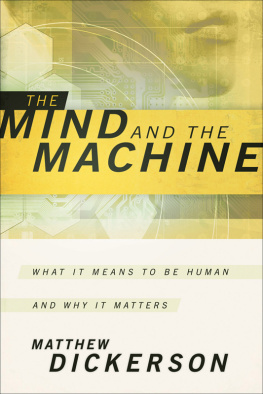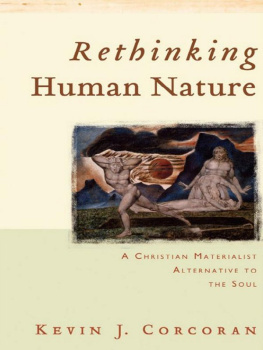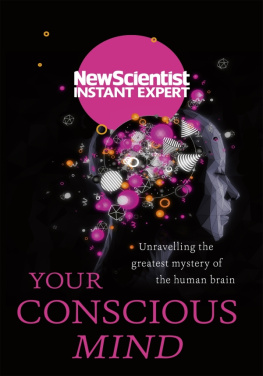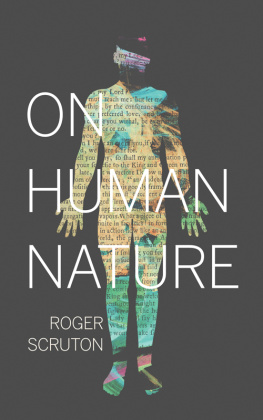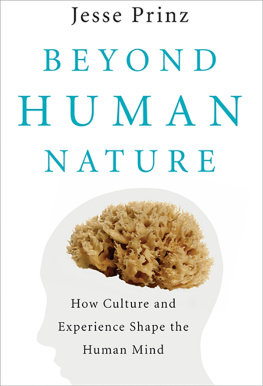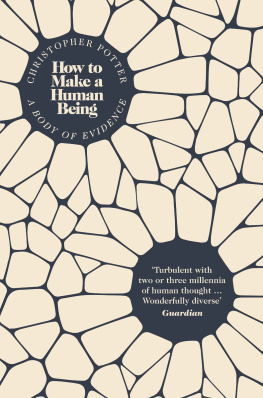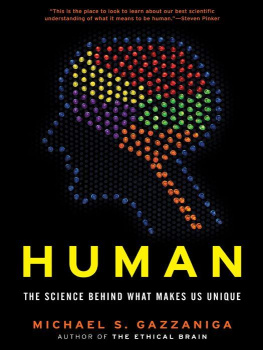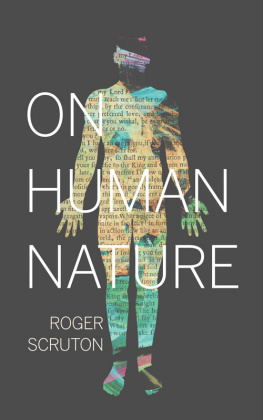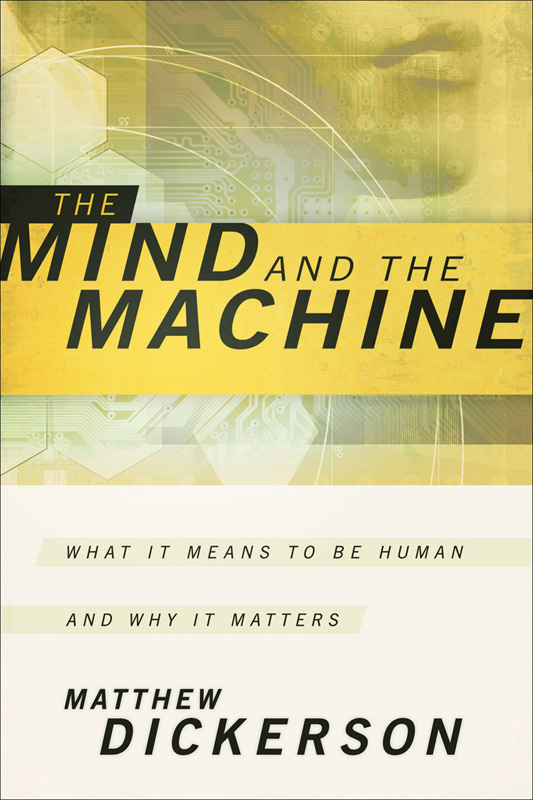

2011 by Matthew Dickerson
Published by Brazos Press
a division of Baker Publishing Group
P.O. Box 6287, Grand Rapids, MI 49516-6287
www.brazospress.com
E-book edition created 2011
All rights reserved. No part of this publication may be reproduced, stored in a retrieval system, or transmitted in any form or by any meansfor example, electronic, photocopy, recordingwithout the prior written permission of the publisher. The only exception is brief quotations in printed reviews.
ISBN 978-1-4412-3197-0
Library of Congress Cataloging-in-Publication Data is on file at the Library of Congress, Washington, DC.
Scripture quotations are from the Holy Bible, New International Version. NIV. Copyright 1973, 1978, 1984, 2010 by Biblica, Inc. Used by permission of Zondervan. All rights reserved worldwide. www.zondervan.com.
For Peter Kreeft, Thomas Howard, and Dick Keyes,
who helped teach me to think and write carefully,
to pay attention to words, and to ask questions.
And for my wife, Deborah,
who steadfastly continues to sharpen my ideas (Prov. 27:17),
and who also challenges me to live out those ideas
(at least the good ones)
in my daily life as a father, husband, and fellow sojourner.
Contents
Acknowledgments
P rofound thanks to Charles Taliaferro and Matthew Kimble for reading early drafts of this book and providing immensely helpful feedback (from your respective fields of expertise), as well as for occasional much-needed words of encouragement. Thanks to my editor Rodney Clapp for giving me the chance to write this book, for careful readings of both the preliminary and nearly final manuscripts, and for help making this a stronger book. Thanks to all my friends in the Chrysostom Society for your fellowship and for modeling such fine writingand for letting me read from poetry and fiction at our annual gatherings, even while I was working on this book. And thanks finally to David OHara for your suggested readings as I prepared to write, and more so for your friendship over the past two decades; thanks also for occasional conversations explicitly and consciously philosophical, for many other conversations deeply philosophical but unconsciously so (especially ones about fishing), and also for many times of fishing when no conversations were necessary save the ones spoken with our reels, rods, fly lines, and flies.
Introduction
Why Any of This Matters
W hat does it mean to be human? More specifically, what does it mean to have a human mind ? Is the human mind, in all its complexity, just a very complex machine? Can it be completely reduced to a computational model? Is the correct understanding of human persons that we are complex biochemical computers?
Until the past several decades, the vast majority of people would have answered those last three questions with a resounding no. They would have said that there is something more to the human person than the body, that we are something more than biochemical machines. To most people throughout history, humans were understood to be spiritual as well as bodily beings. For the past two centuries, however, a growing number of prominent, influential, and respected thinkers have answered the question differently. They have said that the physical reality is all there is, that the human really is just a biochemical machine. Our minds, we are now told, are just very complex computers. If by the word spiritual one is referring to some sort of nonphysical reality, then no, we are told, humans are not spiritual.
This understanding had taken deep root by the middle of the twentieth century. In this first half of the twenty-first century, it is arguably the predominant understanding, at least in mainstream academic and scientific circles of the West. It is the view espoused in the teachings and writings of numerous influential figures over the past half century: scientists, philosophers, and mathematicians as well as artists, writers, and filmmakers. It is accepted in the university classroom and simply assumed to be true in countless newspaper articles and magazine stories, from the pages of Popular Science to those of National Geographic . And as this idea becomes more widely accepted, the implications are being explored. If humans are complex computers, then maybe we can get rid of our current biological mind (and body) altogether. Raymond Kurzweil is one of the chief proponents of this view. As a popular author and widely respected engineer and inventor, and as one of the PBS sixteen revolutionaries who made America, as well as the winner of numerous awards for intellectual achievements, his views are highly influential. In his book The Singularity Is Near: When Humans Transcend Biology , Kurzweil predicts a rapidly approaching future singularity: a period during which the pace of technological change will be so rapid, its impact so deep, that human life will be irreversibly transformed. Eventually, he proclaims, the biological intelligence we now associate with human intelligence will be indistinguishably merged with computer intelligence. Our future will transcend biology.
Kurzweils ideas have been hailed by many other influential figures, such as Bill Gates (founder of Microsoft). There is now a regularly scheduled Singularity Summit, which has been held at prestigious institutions including Stanford University or in major cities, with high-profile speakers. As an example of how close to home these ideas can come, as I was completing this book I learned that Martine Rothblattthe millionaire entrepreneur who founded both Sirius Satellite Radio and the multibillion dollar biotech firm United Therapeuticshad begun a nonprofit organization, Terasem Movement Foundation, Inc., and a related religious organization Terasem Movement Transreligion, in my own small hometown of Bristol, Vermont. Like Kurzweil, the fifty-five-year-old Rothblatt is predicting and working toward a future immortality through downloading our consciousness onto computers, and is using film and radio (and apparently a sizeable amount of money from her business ventures) to help promote her religious ideas.
The broad acceptance of these ideas is also evidenced by their transition from classrooms and philosophical treatises into popular media. In the culturally iconic Matrix trilogy of films (19992003), human consciousness has been connected to a computer, and the majority of humans live their entire lives in a virtual reality (without knowing it). Although humans still have biological brains and bodies (stored in vats and never used), the underlying assumption on which the Matrix is based seems to be that human consciousness is reducible to the bits and bytes that make up computer code and data. Indeed, in the much earlier film Tron (1982), the hero, Kevin Flynn, is captured by a computer when his entire body is scanned and downloaded into computer memoryagain, with the assumption that a person is reducible to a pattern of data.
Of course, science fiction has us imagine the other direction as well: that of humanoid computers, or at least computers that think and act with human intelligence and apparent self-consciousness, even if lacking in humanoid bodies. Even as The Matrix shows humans whose consciousnesses exist in cyber reality, it also imagines computer programs (Agent Smiths and Satis family of programs) behaving with human intelligence, and even human emotions. The list of examples goes on, including the films Blade Runner (1982), A.I. (2001), I, Robot (2004), and perhaps the most iconic example, the Terminator films and television series spinoff. The human imagination has seemingly long accepted the idea of the biological human and the silicon digital computer slowly merging and perhaps becoming indistinguishableeven when they are at war with each other, as in the more recent Battlestar Galactica television series and in both the Matrix and Terminator films.
Next page
